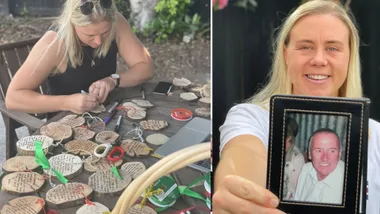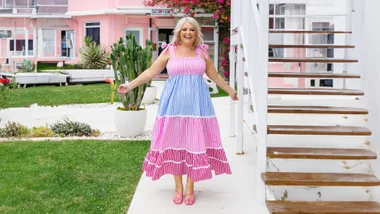Joel Betts pleaded guilty to the attempted murder of Samantha Holland in 2012 after an attack at their apartment in Chippendale in 2010 saw him stab her 26 times in the back.
Samantha, who was 24 at the time of the attack, said that Joel told her: “We will die here together, then we can be together for eternity.”
On the day of the near-fatal attack, Samantha had gone to the apartment to collect her belongings as the relationship had come to an end. Joel had promised her that he would not be home at the time but he was and tried to persuade her to continue the relationship.
Samantha refused, saying “I’m done” and attempting to leave, which was when Joel stabbed her in the back, as well as himself, in an attempted murder-suicide.
That’s when things turned dark as Samantha concocted a cunning yet gruesome plan to escape, telling Joel: “If we are going to do this together, then I should have a turn with the knife.”
Samantha then stabbed Joel in the stomach with the knife and twisted, later escaping the third-floor apartment by swinging off the balcony to the apartment below.
Samantha testified that she struggled to understand “how someone who professed to love me was the one who wanted to cause the most harm”.
“I was stabbed, detained and forced to jump from a third-floor balcony to save my life… I had no intention of dying,” she said.
Joel was found guilty in 2012 and sentenced to a maximum 16 years behind bars, with a minimum non-parole period of 11 years – a sentence that was yesterday upheld at the NSW Court of Criminal Appeal.
During the hearing, Judge Robert Toner said that “profound jealousy” had motivated Joel, who intended to kill Samantha because he could not persuade her to reunite with him.
The court heard that because of Samantha’s stabbing, Joel suffers an irreversible and “embarrassing” bowel condition. The court dismissed this argument as a grounds for appeal though, finding that the wounds “were deliberately self-inflicted or inflicted at [his] instigation and intimately bound up with [his] criminal conduct”.
While two of the defence’s other grounds for appeal were found successful by the appeal panel, they found that they did not warrant a sentence cut because his Joel’s offence of wounding with intent to murder “was so bad, it is not easy to imagine one worse”.










